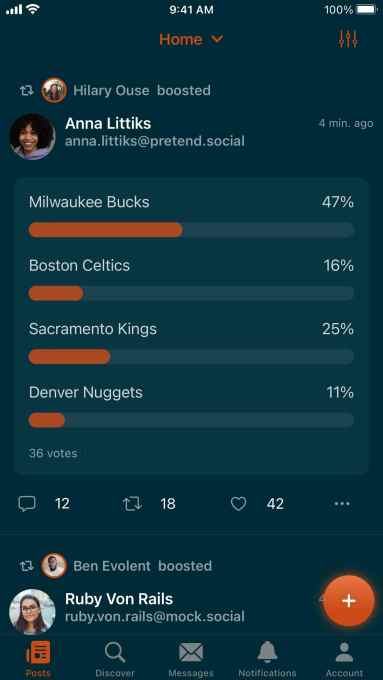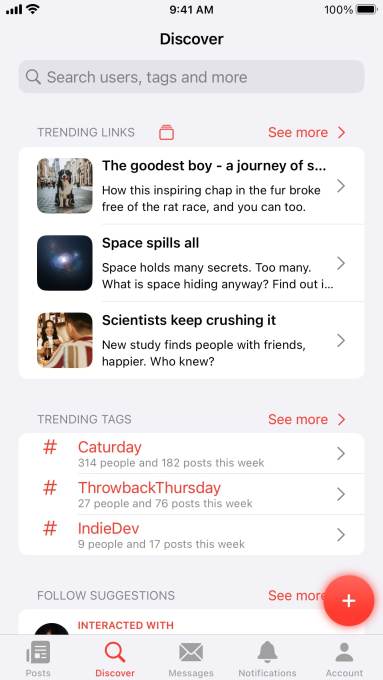While platforms like Reddit and Twitter are changing rules and making life difficult for developers of third-party clients, the ecosystem of Mastodon apps is still growing. Today, indie developer Jake Nelson released a simple iOS app called Radiant, which focuses on simple and functional design.
Other clients, such as Ivory, Mammoth, and Woolly are made by developers who had popular Twitter clients before the Elon Musk platform ostracized them. However, Nelson had no social media app in his development portfolio. He has released various apps like a cookie blocker for Safari, a barcode scanner app to store them in a digital wallet, and a word game under a company called Small Colossus.
Nelson said that he started making Radiant because he had moved to Mastodon and didn’t find any suitable app for the decentralized social network.
“I found that with the rollout of Twitter Blue and the algorithm changes my feed became noticeably worse. A lot of the iOS community on Twitter started talking about moving to Mastodon, and then did, so I took the plunge and did the same. I started to thoroughly enjoy the platform very quickly, but there wasn’t an iOS app that suited me perfectly. Apollo by Christian Selig was previously my most used social media app, by far, and is probably my favorite iOS app ever, and nothing I tried had a similar feel to it,” he told TechCrunch over email.

Image Credits: Radiant.social
Radiant lets you sign in to your existing Mastodon account or create an account on a suggested server. There are plenty of options for posting content including polls, high-quality media, multi-language support and a thread creator tool.
The app has some neat features that are nice to have. For instance, you can filter out duplicate boosts or boosts that you have already seen, show/hide counts for boosts and favorites, display a ring around profile picture of an account which follows you back, and enable advanced post-filtering options.

Image Credits: Radiant.social
One of the biggest challenges with Mastodon is to discover people to follow. Radiant provides recommendations based on people you follow and have interacted with. Nelson said that recommendation features including people, trending hashtags, and popular articles are dependent on the instance where your account has been hosted. He said that he is trying to tap into bigger instances to include some trends from those servers.
Nelson admitted that some parts of the feature set might look like it is overlapping with other popular Mastodon clients, but its unique design and the ability to personalize the interface are the biggest differences. He said that, at this moment, Radiant might cater more to people who are already on Mastodon — but down the line, he wants the app to contribute towards people discovering and joining Mastodon and potentially the broader decentralized social media ecosystem.

Image Credits: Radiant.social
Radiant is free to use app with most features available without any cost. For $1.99 per month, users can get a Premium account and features like custom themes and icons, push notifications, and support for multiple accounts.
Earlier this year, Twitter booted out third-party clients by changing its API rules. Currently, Reddit is taking similar steps to limit commercial alternative clients. Nelson said that he has faith in Mastodon in maintaining the open-sourced nature of the network.
“I view Mastodon as truly open, in that it is open source and its foundations center around interoperability and API access, compared to Reddit and Twitter where the API access can be taken away. While Mastodon the software is technically built and run by a company, that company is a non-profit organization. Mastodon gGmbH also runs the largest Mastodon instances mastodon.social, but I don’t think there is any risk of the API going away or becoming paid which would threaten the future of Radiant, as the non-profit’s goals are broadly toward openness and greater access to the decentralized social web,” he said.
Radiant is a no-frills iOS client for Mastodon by Ivan Mehta originally published on TechCrunch
DUOS





